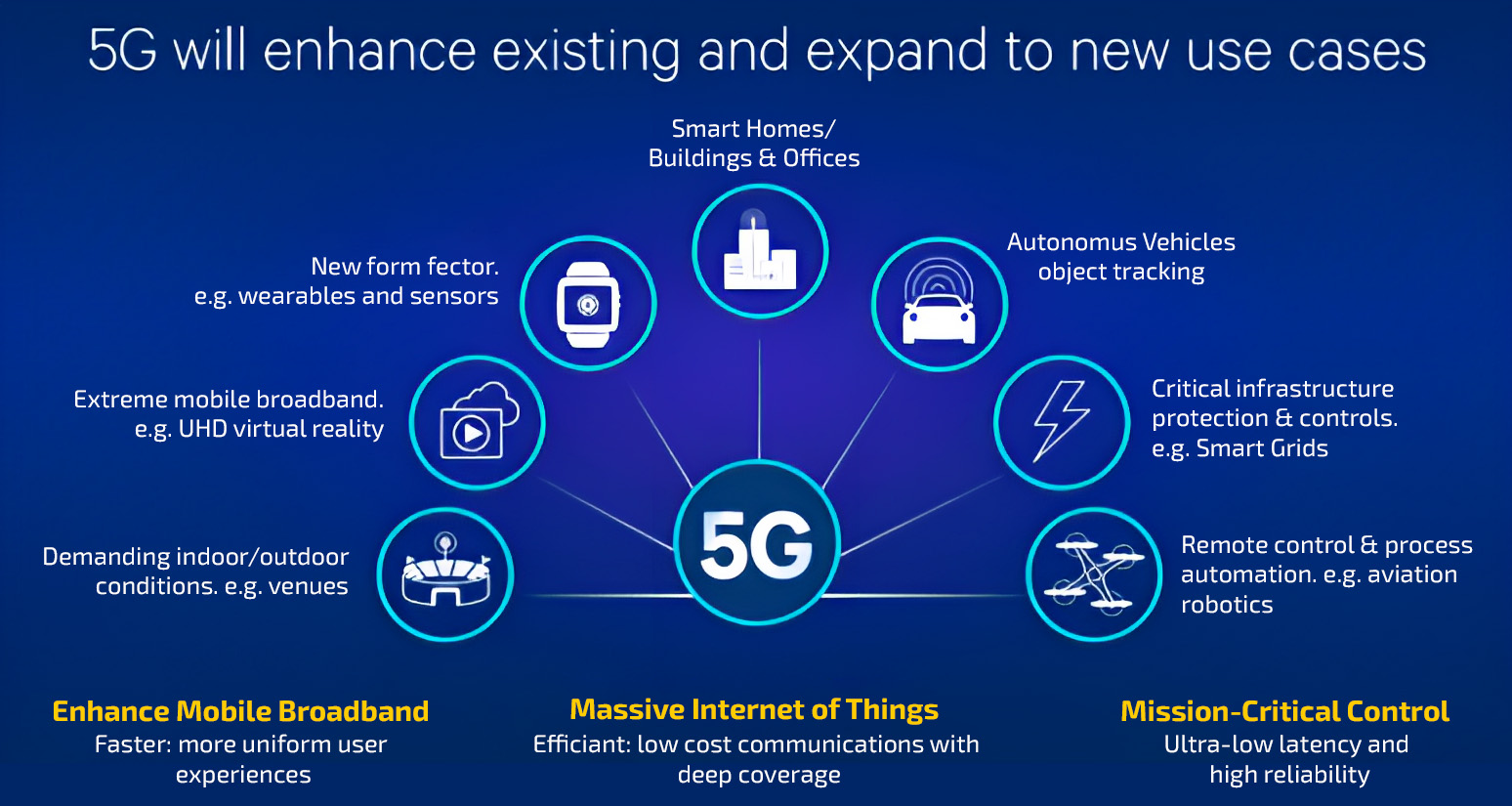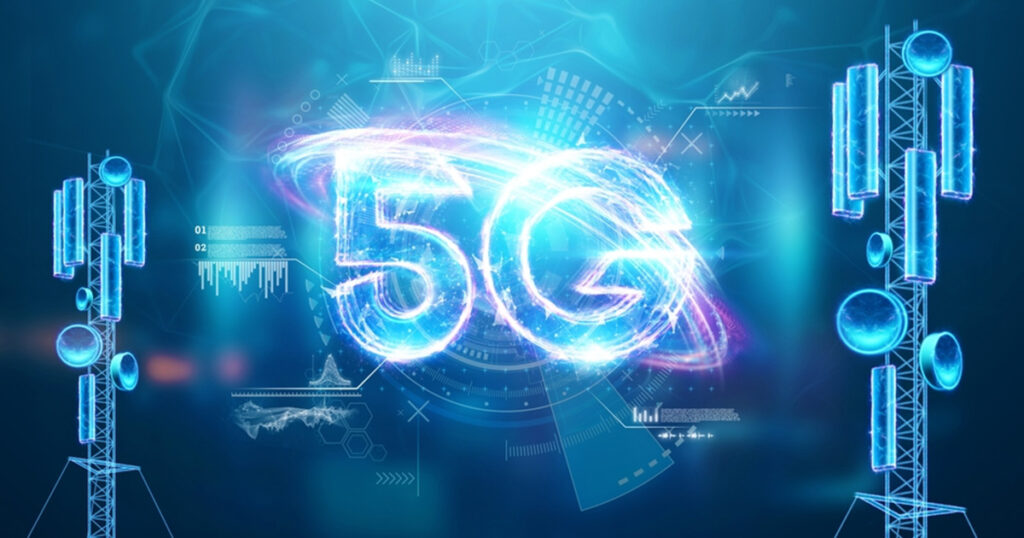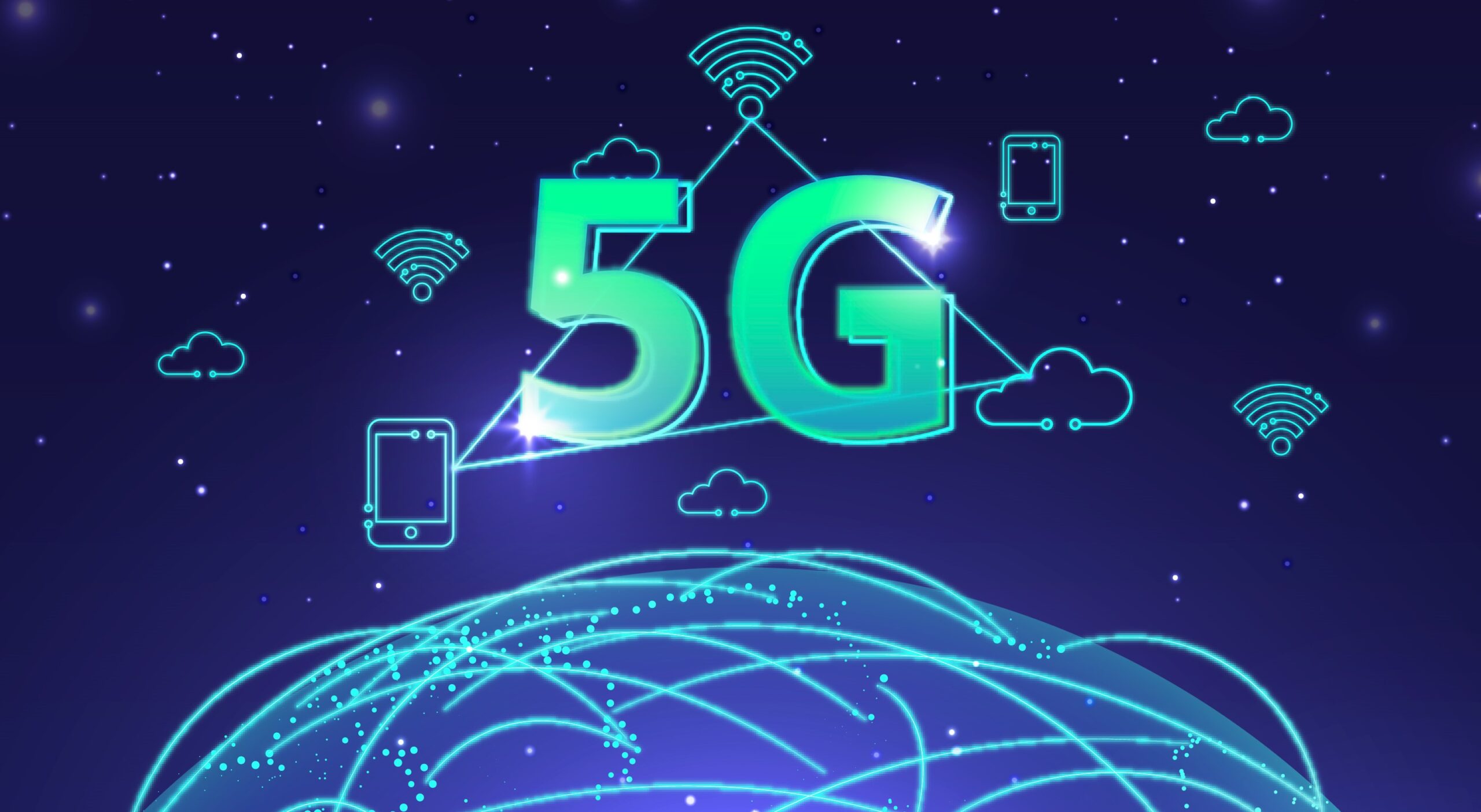Introduction
In today’s fast-paced digital world, mobile communication has become an integral part of our daily lives. As technology continues to evolve, so does the way we use our mobile devices.
The introduction of 5G technology is set to revolutionize the way we communicate, work, and live.
5G technology is the latest innovation in wireless technology that promises to deliver faster speeds, lower latency, and greater reliability than its predecessors.
It is expected to enable new applications such as augmented reality, virtual reality, and smart cities, and transform industries such as healthcare, transportation, and manufacturing.

The impact of 5G technology on the telecom industry is significant. It is expected to increase the capacity and efficiency of mobile networks, enables massive machine-type communications, and provide a better user experience.
However, the implementation of 5G technology is not without its challenges. It requires high infrastructure costs, and technical expertise, and poses security risks.
Our Blog will explore the future of 5G technology and how it will impact the telecom industry.
We will discuss the advantages and challenges of 5G technology, its potential applications, and the advancements in network architecture.
By the end of this blog, you will have a better understanding of how 5G technology will shape the future of mobile communication and the telecom industry.
Definition of 5G Technology
5G technology refers to the fifth generation of mobile communication networks that are expected to deliver higher speeds, lower latency, and greater reliability compared to their predecessors.
It is the latest innovation in wireless technology that is set to revolutionize the way we use our mobile devices.

How 5G Technology Works
 5G technology works by using higher frequencies, smaller cell sizes, and advanced network architecture to deliver faster and more reliable communication.
5G technology works by using higher frequencies, smaller cell sizes, and advanced network architecture to deliver faster and more reliable communication.
It operates on three frequency bands: low, mid, and high. The low-band frequency provides broad coverage but limited speed, while the high-band frequency provides high speeds but limited coverage.
The mid-band frequency provides a balance between coverage and speed.
Importance of 5G Technology

The importance of 5G technology lies in its ability to enable faster communication, improve the user experience, and provide new opportunities for industries.
It is expected to drive innovation and economic growth, transform industries such as healthcare, transportation, and manufacturing, and enable new applications such as augmented reality, virtual reality, and smart cities.
5G Technology in Telecom Industry
The “G” – or generation – of cellular technology is one of the main forces behind the ongoing change and evolution of the telecom sector.
Faster speeds, greater capacity, and new features that improve our quality of life and connectivity come with each new iteration.

The Impact of 5G on Telecom:
- The current state of broadband, 5G, and its implications
- Telecom providers’ spending plans
- The industry landscape and possible investment possibilities
Faster speeds and increased capacity for activities like streaming video, downloading audio, browsing the web, and using social media come with each new iteration.
And as we are all aware, nowadays, people use their smartphones for purposes other than just making phone conversations.
Why 5G is Important for the Telecom Industry

- The telecom sector needs to engage in 5G if it wants to remain competitive. This will not only give them an advantage over their rivals, but it will also enable them to provide the most cutting-edge technology to their clients.
- 5G is significant because it has several benefits over earlier wireless technology versions. For starters, it has much faster rates, allowing users to do more with their devices.
- Additionally, it has reduced latency, which means that using 5G-capable devices will result in less lag. Since 5G uses less energy than earlier generations, telecom firms can reduce their energy costs.
- Overall, 5G signifies a significant advancement for the telecom sector. It provides greater reliability, reduced latency, and faster speeds. All of which are necessary for the upcoming creation of new services and apps.
Impact of 5G Technology on the Telecom Industry
The introduction of 5G will drastically alter the telecommunications sector. New services and applications that were previously impossible will be made feasible by 5G’s faster speeds and lower latency.
The way telecom providers conduct business will significantly change as a result of this. The network architecture will be greatly impacted by 5G as well. For the high speeds and low latency of 5G, the existing 4G infrastructure is not built.
Telecom companies will need to update their networks to accommodate the new technology in order to implement 5G. Although this upgrade will be expensive, it is essential to beat the competition.
Consolidation in the telecommunications sector will also be sparked by the introduction of 5G. Small players will struggle to live due to the high costs of 5G deployment.
In the upcoming years, we anticipate a significant number of mergers and purchases in the telecom industry.
The 5th generation (5G) of wireless communication technology is expected to revolutionize the telecom industry in many ways. Here are some of the potential impacts of 5G technology:
Faster speeds:

5G technology promises to offer much faster internet speeds than the current 4G networks, with speeds up to 100 times faster than 4G.
Improved connectivity:
 5G technology will allow for more devices to connect to the internet simultaneously, with improved network coverage and capacity.
5G technology will allow for more devices to connect to the internet simultaneously, with improved network coverage and capacity.
This will enable the Internet of Things (IoT) to become more widespread, with a greater number of connected devices and sensors.
Lower latency:

5G technology will reduce network latency or the time it takes for data to travel between a device and the network.
This will enable more real-time applications, such as virtual reality, augmented reality, and autonomous vehicles.
Enhanced network slicing:
 5G technology will allow network operators to create virtual networks tailored to specific applications or services, such as smart cities or industrial automation.
5G technology will allow network operators to create virtual networks tailored to specific applications or services, such as smart cities or industrial automation.
Increased revenue opportunities:
 The increased speed, connectivity, and capacity of 5G networks will create new revenue opportunities for telecom operators, such as offering premium services to businesses or charging for access to high-speed networks.
The increased speed, connectivity, and capacity of 5G networks will create new revenue opportunities for telecom operators, such as offering premium services to businesses or charging for access to high-speed networks.
Overall, the impact of 5G technology on the telecom industry is expected to be significant, with the potential to transform the way we live, work, and communicate.
5G Use Cases in the Telecom Industry
The discussion of 5G is rife in the communication sector.
The way we converse and interact with the world around us is expected to be completely transformed by this next-generation wireless technology.
5G will enable new and creative use cases that are not feasible with today’s wireless networks thanks to speeds that are up to 100 times faster than 4G.
There are a lot more benefits to 5G than just faster speeds and higher throughput.
Along with improving mobile broadband (eMBB) and enabling faster data rates over larger areas, it will also enable massive machine-type communications (mMTC) to promote the widespread adoption of Internet of Things (IoT) services across numerous business verticals.
Additionally, it will provide mission-critical applications with ultra-reliable low-latency communications (URLLC).

- Enhanced mobile broadband: Mobile broadband speeds will significantly increase with 5G, making it possible to stream high-definition video, download big files, and browse the internet at breakneck speeds.
- Ultra-reliable low-latency communications: One of 5G’s main advantages is its extremely low latency, which creates new opportunities for mission-critical apps like remote surgery, self-driving cars, and industrial robotics.
- Massive machine-type communications: New applications that require communication between a large number of devices, like connected vehicles and smart cities, will be made possible by 5G’s enormous scale.
- Private LTE/5G networks: Businesses can create their own specialized wireless networks using private LTE/5G networks for more control and protection.
- Fixed wireless access: There is no need for cables or fiber optic lines when using 5G to provide high-speed internet connectivity to homes and businesses.
Pros and Cons of a 5G in the Telecom Industry
The fifth generation (5G) of wireless technology holds great potential. However, there may be dangers involved that should be taken into account.
Here are a few benefits and drawbacks of 5G for the communication sector.
Pros:
- Increased speed and capacity: In comparison to earlier wireless technology generations, 5G provides much faster speeds and capacity. Telecom companies will be able to serve more users and provide more dependable service as a result.
- Lower latency: The time that elapses between when a user makes a request and when they receive a response is known as latency, and 5G has the potential to greatly reduce this time. This might enable real-time apps like virtual reality and gaming.
- More efficient use of spectrum: More users can be served on the same network thanks to 5G’s improved spectrum utilization.
Cons:
- Potential health risks: According to some research, radiofrequency radiation from things like cell phones can cause cancer and other health issues. More research is required to fully understand the risks because 5G technology is expected to increase exposure levels.
- Interference with other equipment: It has been demonstrated that weather radar and other delicate devices are affected by 5G signals. For sectors that depend on this technology, like air transport and emergency services, this could lead to serious issues.
- Security concerns: In comparison to earlier generations, 5G networks are anticipated to be significantly more complicated, which could make them more susceptible to attacks.
Challenges of 5G Technology in the telecom industry
The adoption of 5G technology in the telecom sector is anticipated to have a number of advantages, including increased connectivity, reduced latency, and faster data transfer rates.
To completely utilize the potential of 5G, however, the industry must also overcome a number of obstacles.
Some of these challenges include:
Infrastructure:

Extensive infrastructure expenditure is needed to support 5G technology, including the installation of new antennas and small cells as well as the upgrading of current network hardware.
This is an expensive procedure that uses a lot of time and resources.
Spectrum availability:
 A sizeable quantity of spectrum is needed to implement 5G, and this spectrum might not always be accessible.
A sizeable quantity of spectrum is needed to implement 5G, and this spectrum might not always be accessible.
This involves reallocating existing spectra and allocating new spectrum bands, which can be a drawn-out and challenging procedure.
Security:
 Due to the growing number of connected devices and the use of new technologies like software-defined networking (SDN) and network function virtualization, 5G networks are susceptible to security risks like cyberattacks and hacking. (NFV).
Due to the growing number of connected devices and the use of new technologies like software-defined networking (SDN) and network function virtualization, 5G networks are susceptible to security risks like cyberattacks and hacking. (NFV).
New security protocols and steps are needed to ensure the security of 5G networks.
Regulatory Compliance:
 Telecommunications firms may find it difficult and time-consuming to comply with the stringent regulatory compliance standards that apply to the rollout of 5G.
Telecommunications firms may find it difficult and time-consuming to comply with the stringent regulatory compliance standards that apply to the rollout of 5G.
This covers observing data privacy laws, network security requirements, and other rules pertaining to the installation and use of 5G networks.
Cost to Consumers:

Consumers may pay more for 5G technology than for earlier wireless technology generations.
This may limit the use of 5G in some markets and make it impossible for some users to finance the new technology.
Conclusion
In conclusion, 5G technology is poised to have a transformative impact on the telecom industry.
The technology promises to offer faster data transfer rates, lower latency, and improved connectivity, opening up new opportunities for innovation and growth.
The implementation of 5G, however, is not without its challenges, including the need for significant investment in infrastructure, spectrum availability, security concerns, interoperability, and cost.

Despite these challenges, the telecom industry is already moving forward with 5G deployment, with many countries launching 5G networks and devices becoming increasingly available to consumers.
As technology continues to develop, we can expect to see even greater advances in areas such as virtual and augmented reality, smart cities, and autonomous vehicles.
It is important to note that the full potential of 5G technology is not limited to the telecom industry alone, but extends to a wide range of sectors, including healthcare, education, transportation, and entertainment.
The integration of 5G with other emerging technologies such as artificial intelligence, machine learning, and the Internet of Things (IoT) will unlock new opportunities for innovation and disruption, leading to a more connected and digitally-driven world.
Overall, the impact of 5G technology on the telecom industry and beyond is still in its early stages, but the potential for growth and development is vast.
As the world becomes increasingly reliant on digital connectivity and communication, the importance of 5G in shaping the future of technology and society cannot be overstated.






![Advanced Driver Assistance System [ADAS] Everything You Needs to Know](https://www.logic-fruit.com/wp-content/uploads/2022/10/Advanced-driver-assistance-systems-Thumbnail.jpg)





